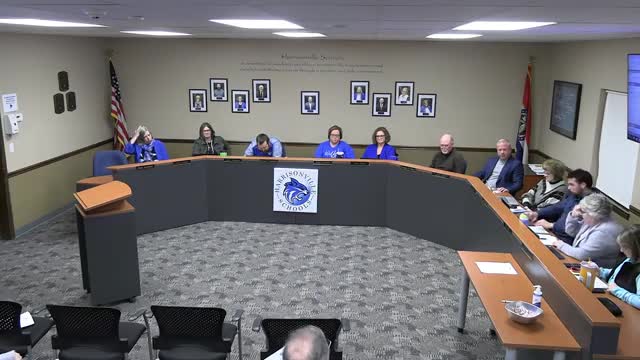Finance report: revenues rising, insurance premiums jump; technology director outlines phishing defenses and cyber insurance requirements
Get AI-powered insights, summaries, and transcripts
Subscribe
Summary
District finance staff reported year‑to‑date revenues are slightly ahead versus last year and cash and investments total about $25.6 million; music insurance premiums increased by about $150,000. Technology director described daily cybersecurity protections, phishing training and the district’s cyber insurance requirements.
Finance update: District finance staff reported the fiscal year is roughly halfway complete. Year‑to‑date revenues were reported at about 43% of the working budget, with a recent tax receipt of a little more than $13 million arriving in the last month and a half. The district’s overall fund balance increased to about 54% compared with 43% the prior December; cash and investments were reported at $25.6 million. On the expenditure side, the district was about 29% of the working budget at the time of the meeting.
Finance staff said an increase in music insurance premiums raised costs by approximately $150,000 compared with the prior year; the premium increase was attributed by staff to weather/storm activity during the prior year. Staff said they continue to evaluate insurance and other options but that market choices are limited.
Technology and cybersecurity: Director of Technology Mike Diggs briefed the board on cybersecurity protections. He said the district runs continuous network appliances and filters spam and suspicious emails; he described phishing simulation videos and exercises used to train staff and said the work is required by the district’s cyber insurance program. The district completes an annual survey for cyber insurance and must maintain certain security practices to qualify and avoid higher deductibles. Board members asked about how email threats propagate and whether students receive spam; staff responded that spam filtering is in place but that internal actions (clicking malicious links) are a common vulnerability and that the district monitors incidents and follows up when staff engage with simulations.
Board members asked questions; staff said they can provide additional reports on cybersecurity activity if the board wants more detail.
